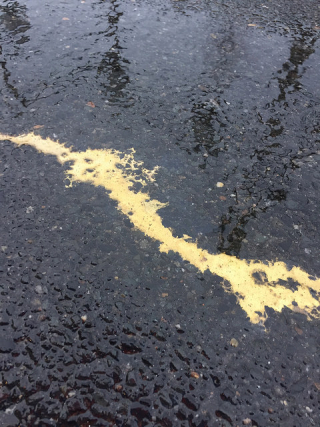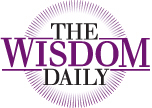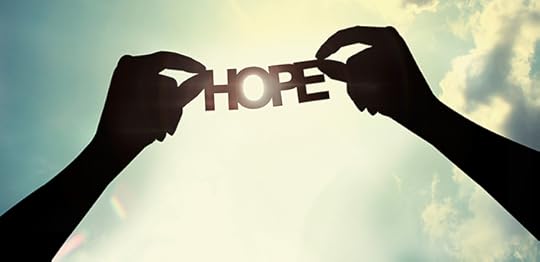Rachel Barenblat's Blog, page 95
November 29, 2016
A crack in everything
I was walking with my son at MASS MoCA on a recent rainy day. He was collecting Pokémon on my phone, and I was letting my mind wander with our footsteps. The asphalt of the pavement beneath my feet was cracked in several places. As in many places, the cracks had been filled in and repaired.
But then I noticed that these repaired cracks weren't quite like the ones I see everywhere else. They gleamed. They were golden. And then I noticed the small plate on the side of building 11 indicating that this is an art piece by Rachel Sussman, part of an exhibition called The Space Between. Here's how the artist herself describes the piece:
Fracture is investigated by Rachel Sussman, who restores cracks in pavement in the museum parking lot by adapting the Japanese art of kintsukuroi. On the ground in the interior courtyard behind the museum’s main building, resin and gold powder fill the cracks on the ground caused by cars and weather. The tiny streams of gold create fractal patterns recalling aerial topographical photographs. The philosophy of kintsukuroi treats cracks as fundamental parts of an object, noting that value lies in accepting change and underscoring the aesthetic qualities of imperfection and use rather than disguising flaws.
I learned the name of the art as kintsugi, and I've written about it before (see From trauma to healing, a d'var Torah I shared for Shemini a couple of years ago.) I learned about it from a blog reader, who told me about it after I posted the poem Find in April 0f 2015. The art, as I understand it, inheres in repairing broken things with gold so that their brokenness becomes a focal point and a locus of beauty, rather than being a cause for shame.
We all have broken places. Our bodies break -- I became aware of that in a new way when I had my strokes. And even absent something dramatic like a stroke, our bodies all have flaws, and the older we get, the less our bodies match the supposed ideals of youthful slimness that our current culture so prizes. Our hearts break -- we experience love lost or unrequited, seasons of loneliness and invisibility, the personal griefs that we all come to carry. Our minds break -- over time they lose their elasticity, and remembering things becomes more difficult. And our spirits break -- the world is unfair, children fall ill and do not recover, world news can be horrifying and disheartening. We are all broken, sometimes.
It can be tempting to try to hide the brokenness. To put a bandaid on it, or cover it over with makeup, or put on the proverbial happy face and pretend it away. And there are times when pretending at gratitude can help us actually get there. But there are also times when pretending away our brokenness and our grief is a form of spiritual bypass. I think that often authentic spiritual life demands something different: that we feel what we feel, and that we call it what it is, honestly and openly. Sometimes we feel broken. (Sometimes we are broken.) And that's okay. Granted, it doesn't feel good. Nobody wants to be broken. But pretending that we are otherwise doesn't actually change anything. The art of kintsugi offers a different path: paint our broken places gold.
Paint our broken places gold, and embrace them. Recognize that the more life we have lived, the more scars we are likely to have -- visible or invisible -- and that our scars are not a flaw in us, but an intrinsic part of what makes us human. Beyond that: our broken places can paradoxically be a source of our wholeness. The sages of the Talmud taught that if an earthen vessel becomes tamei ("impure," charged-up with spiritual energy in a dangerous way) the way to make it tahor (pure) is to break it and glue it back together. Torah teaches that we are beings of the earth: we too can become pure and whole not despite our brokenness, but in and through it. Or as the Leonard Cohen z"l wrote, "There is a crack in everything. That's how the light gets in."
I'm grateful to Rachel Sussman for adding a little bit of beauty and sparkle to the rain-drenched pavement outside of MASS MoCA, and for reminding me to find the beauty in my own broken places.

Exciting news: I'm coming to Williams!
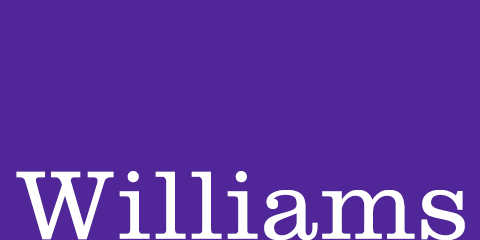 Exciting news: this spring, in addition to serving my congregation as their rabbi, I'll have the opportunity of another way to serve -- I'm going to be the interim Jewish chaplain to the College at Williams College, my alma mater!
Exciting news: this spring, in addition to serving my congregation as their rabbi, I'll have the opportunity of another way to serve -- I'm going to be the interim Jewish chaplain to the College at Williams College, my alma mater!
In 2017 it will be 25 years since I first came to the Purple Valley to attend Williams. One of my first memories of that freshman fall is of going to Friday night dinner and services at the Jewish Religious Center (a.k.a. the JRC).
For the four years I was an undergrad, I was intimately involved with the Williams College Feminist Seder Project. The JRC is where I first met Rabbi David, with whom I now serve as co-chair of ALEPH. I am delighted by the prospect of being able to give back to the campus Jewish community that set me on the path to who and where I am today.
My work at Williams will have (at least) two facets: caring for the college Jewish community (a.k.a. WCJA), and engaging with the multi-faith community on campus. I'm excited about both of these. I'm looking forward to getting to know a new generation of Jewish Williams students and seeing how their Jewish experience at Williams both is and isn't different from the one I remember. And I'm looking forward to working with the Christian, Catholic, and Muslim chaplains on campus -- and with the student faith-communities they serve -- as together we navigate what it means to be people of faith in a multi-faith world at this moment in time.
I will also still be serving Congregation Beth Israel as their rabbi, and that's an honor and a privilege too. I'll still be leading davenen at CBI two Shabbat mornings a month and leading our meditation minyan on Friday mornings, teaching my five b'nei mitzvah students, offering an Introduction to Judaism class on Wednesday evenings, preparing for the round of winter and spring holidays, and offering pastoral care and lifecycle support to the shul community.
I know that there will be challenges in making two halftime jobs dovetail, but I am committed to making it work this spring -- and I'm excited about the possibilities of more closely connecting the synagogue in Northern Berkshire with the campus Jewish community of which I once again get to be a part.

November 28, 2016
Reflections on the anniversary of becoming a mom
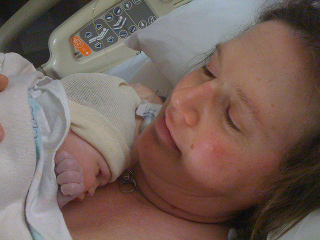 Until I became a parent, I didn't think much about how every person's birthday can (or at least might) also mark a day of transition for the woman who brought that person into the world. I didn't think about how my birthday is a kind of anniversary for my mother. Year after year, my birthday must be for her a reminder of the day in late March when I decided I was ready to enter the world some ten weeks ahead of schedule.
Until I became a parent, I didn't think much about how every person's birthday can (or at least might) also mark a day of transition for the woman who brought that person into the world. I didn't think about how my birthday is a kind of anniversary for my mother. Year after year, my birthday must be for her a reminder of the day in late March when I decided I was ready to enter the world some ten weeks ahead of schedule.
Each year on my son's birthday I remember what it was like to drive to the hospital on the day after Thanksgiving. I remember how it felt to be attached to the pitocin drip that told my body it was time to begin labor, and to move through labor (with expert assistance from nursing staff, doula, and obstetrician). I remember closing my eyes and singing we are opening up in sweet surrender silently to myself when it was time to push.
I remember holding an impossibly tiny newborn on my chest, snugged in a warm blanket fresh out of the dryer. I remember the clarity of mind that accompanied that moment -- the realization that my life had changed in ways I knew I couldn't yet imagine. I remember eating pizza, that night -- we bought several, after he was born, and distributed them giddily to the nursing staff on duty -- and how good it tasted after the work of labor. I remember thinking okay, now what?
I didn't know then that the valley of the shadow of postpartum depression awaited me. I didn't know then that I would write one poem a week during my son's first year of life -- the poems that now make up Waiting to Unfold (Phoenicia, 2013). I re-read that collection now and feel a strange combination of recognition and unfamiliarity. Life with a seven year old bears almost no resemblance to what I chronicled then. But I am endlessly grateful for the adventure of parenthood. I'm endlessly grateful for the soul that is in my keeping, this beautiful and thoughtful and goofy and funny human being who I am privileged to parent.
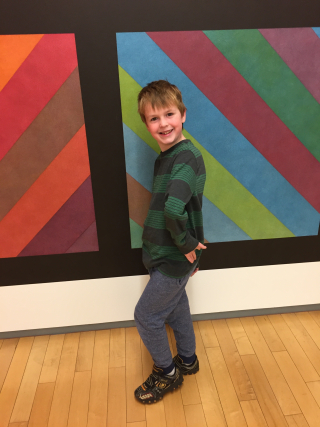 Becoming a parent has changed my relationship with God. I have been blessed to learn deep compassion and empathy in other ways too, not only through the vehicle of parenthood. There are others beyond my son to whom I extend my heart and my care. But I feel a unique responsibility for and to my son, because I grew him from component cells. Because I brought him into this world.
Becoming a parent has changed my relationship with God. I have been blessed to learn deep compassion and empathy in other ways too, not only through the vehicle of parenthood. There are others beyond my son to whom I extend my heart and my care. But I feel a unique responsibility for and to my son, because I grew him from component cells. Because I brought him into this world.
I take the love and compassion and anticipatory grief I feel for my child (who is beautiful, and perfect, and deserving of care, and who I know will experience losses over his life, as we all do) and I magnify it by the number of souls who have ever lived and will ever live, and I glimpse of what God must feel. Ha-rachaman: the Merciful One, the Enwombed One, the One in Whose Compassionate Womb all of creation is nurtured!
And the pride and joy and satisfaction I find in my child (who is kind and thoughtful and surprising) magnified by the number of souls who have ever lived and will ever live... Contemplating that, I have renewed empathy for the cosmic Parent Who weeps with us when we are hurt, and rejoices with us when we are glad, and wants us to grow into all that we can become, as I want my child to grow into everything that he can become.
Today, as I wish my son a happy seventh birthday, I wish myself a happy seventh anniversary of motherhood. May I live up to the challenge of rearing him to be simultaneously strong and gentle, thoughtful and empathetic, creative and rooted: a citizen of the wide world who knows where he comes from, whose deep roots enable him to spread his wings as he becomes whoever he yearns to be.

November 25, 2016
Come to the NHC Winter Retreat!
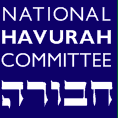 Ever thought about attending a National Havurah Committee retreat? Next month they'll be holding their annual winter retreat in Palmer, MA from December 16-18. This year’s retreat will feature a wide variety of ALEPH folks, including me and my co-chair Rabbi David Evan Markus, ALEPH-ordained Rabbi Cherina Eisenberg, ALEPH rabbinical student Carl Woolf, and Rabbi David Seidenberg.
Ever thought about attending a National Havurah Committee retreat? Next month they'll be holding their annual winter retreat in Palmer, MA from December 16-18. This year’s retreat will feature a wide variety of ALEPH folks, including me and my co-chair Rabbi David Evan Markus, ALEPH-ordained Rabbi Cherina Eisenberg, ALEPH rabbinical student Carl Woolf, and Rabbi David Seidenberg.
Rabbi David will be teaching a workshop on angels, and I'll be teaching a workshop on writing prayers of gratitude and thanksgiving, and together we'll offer a workshop on the Shema and the mystical ascent of Isaac the Blind. We'll also be co-leading Sunday morning services together, so expect lots of harmony and song. (I'm already looking especially forward to that part.) Here's how the organizers describe the weekend:
Studying Torah and celebrating a musical Carlebach-style Kabbalat Shabbat service begin the weekend together. Friday evening continues with dinner, singing, and study sessions. On Saturday and Sunday, take time for spirited prayer, or walk at the lake, study accessible texts, learn and sing new songs, stretch your body and your mind. There will also be a supervised program for children, with time for learning and entertainment as well as play – both inside and outdoors.
Camp Ramah in New England is located just outside of Palmer, MA, a few miles north of exit 8 off the Mass turnpike. It is about an hour from either Boston or Hartford, CT, 90 minutes from Albany, NY or Providence, RI., and about 3 hours from New York City.
Download the full brochure and registration form!
I hope you'll join us!

November 22, 2016
New at The Wisdom Daily
When I was younger,
I believed the mystical teachings
could erase sorrow. The mystical teachings
do not erase sorrow.
They say, here is your life.
What will you do with it?
— Yehoshua November, “Two Worlds Exist”
These lines are from the opening poem of Yehoshua November’s new collection of poetry, Two Worlds Exist. When I first read them, they went directly to my heart.
Yes: the great teachings of my tradition often offer me comfort – and there are sorrows those teachings cannot touch. It is childish to imagine that if only I could find the right teaching, the right text, I could erase grief — my own, or that of someone I love. Better to let the texts do as November describes: to let them open up for me the sacred text of my own life and wait for me to answer their question with my choices, with my living....
That's the beginning of my latest post for The Wisdom Daily, which is both a personal reflection and a review of Yehoshua November's latest collection. Read the whole thing: Here Is Your Life. What Will You Do With It?

November 21, 2016
A sweet Shabbes (and then some) in Michigan
What a gift it is to get to spend a Shabbes (and then some) the way I just did!
On Friday night, Rabbi David and I went to Shir Tikvah in Troy, MI, to serve as the official ALEPH representatives at the installation of our dear friend and colleague (and fellow ALEPH Board member) Rabbi Aura Ahuvia as the new rabbi there.
We spent most of the evening on the bimah with Hazzan Steve Klaper and Rabbi Arnie Sleutelberg, the four of us surrounding Rabbi Aura and singing with her in impromptu harmonies. We sang three different "Lecha Dodi" melodies, one of which I'd never heard before. We sang "Yihiyu L'ratzon" and "Oseh Shalom" to the tune of Leonard Cohen's "Hallelujah." I think the highlight of my night was Shir Yaakov's "Higale Na" -- one of my favorite melodies to harmonize to, with some of my favorite people to harmonize with. I know I've said this before, but singing beloved liturgy in harmony with beloved friends who love the liturgy as much as I do is basically my idea of heaven. It was also a particular highlight to hear words from Reverend Bill Kondrath as part of Rabbi Aura's installation -- he was one of my teachers at Clergy Camp last summer.
On Shabbes morning we gathered with the Pardes Hannah community, which is led by Rabbi Elliot Ginsburg (known in the ALEPH world simply as Reb Elliot.) Reb Elliot teaches Hasidut in the ALEPH Ordination Program. I've davened with Reb Elliot before, when I was in rabbinical school, but there's a difference between being with someone in the unique holy container of an ALEPH Ordination Program intensive, and being with them in their own home context, their own home community. I loved getting to see what kind of services he leads when he's at home with his own congregants. I shared poetry interwoven with the morning service, and Rabbi David shared a beautiful d'var Torah on the weekly Torah portion, healing from hurt, and vision.
Part of the fun of the Listening Tour we engaged in over our first fifteen months as co-chairs of ALEPH was getting to daven in so many different ALEPH places around the continent. No two Jewish Renewal services are the same. While both Shir Tikvah and Pardes Hannah use their own homegrown siddurim (prayerbooks), the two siddurim are different. The Shir Tikvah siddur is beautifully designed and thoughtfully put-together. Reb Elliot's siddur is packed full of great poetry (Louise Glück, Mary Oliver) and texts from the Jewish mystical tradition. As a liturgy geek, I love seeing what texts people use when they daven. And as a Renewalnik, I love seeing how skilled leaders of prayer take whatever texts are in their book and bring them alive in a way that brings the daveners more to life ourselves too -- to me that's one of the practices at Jewish Renewal's core.
After lunch, Rabbi David and I spoke with the room a bit about ALEPH and Jewish Renewal, which led into a rich and thoughtful conversation about Jewish Renewal's past, present, and future. That led seamlessly into some mid-afternoon text study. Reb Elliot had prepared texts from two Hasidic masters, Netivot Shalom and Kedushat Levi, on the week's Torah portion. There was a moment when we were all sitting around the living room with text handouts, and someone made a fabulous point that incisively made the text and its relevance more clear, and I couldn't help beaming, and Rabbi David turned to me and murmured "welcome home." It did feel like a kind of homecoming: to be seated in the house of my teacher and friend, learning with dear friends again, immersing ourselves in words of Torah at the afternoon peak of a prayerful Shabbat.
And then came Saturday night, a havdalah program called An Evening of Song and Spirit(s) in Detroit. The program was created by Rabbi Dan Horowitz of The Well, and co-presented by ALEPH and Hazon (and supported by the Covenant Foundation; thanks to all of the above.) The event was held in a place called Ponyride, a coworking space and event space located in an old warehouse. Rabbi Dan led us in dance niggunim. Cantor Michael Smolash of Temple Israel led some beautiful niggunim (wordless Hasidic melodies), as did Rabbi Alana Alpert (who chose to bring one of my favorite melodies from Nava Tehila, the Jewish Renewal community of Jerusalem -- the niggun they call Into the West.) Reb Elliot offered teachings from the Zohar at the intersection of the old week's Torah portion and the Torah portion for the week that was on the cusp of beginning. Rabbi David offered a contemplative / experiential deep dive into portals in holy time. And I shared poems from Open My Lips and from my as-yet unpublished next manuscript Texts to the Holy.
Sunday was a day of deep ALEPH conversations with our hosts, Reb Elliot and his wife Linda Jo Doctor (who, like Rabbi Aura, serves with us on the ALEPH Board.) We started talking shop over coffee first thing in the morning and didn't stop until evening when it was time for the two of us to regretfully take our leave and head for the airport to return home. (And yes, we managed a trip to Zingerman's in there -- which is every bit as fabulous a place as their catalogue had led me to believe.)
A weekend like this one may be physically tiring, but it's emotionally and spiritually restorative. I'm so grateful to our hosts in Troy and Detroit and Ann Arbor for welcoming us into their homes and communities and prayer spaces, and for the opportunity to have my heart and soul enlivened by the feeling of "coming home" into communities where I had never before been.

November 17, 2016
Michigan, here I come!
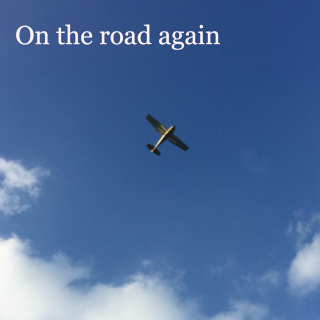 I'm heading to Michigan today with my ALEPH co-chair Rabbi David Evan Markus. We have a few special things on our schedule for the weekend.
I'm heading to Michigan today with my ALEPH co-chair Rabbi David Evan Markus. We have a few special things on our schedule for the weekend.
Tonight we'll be at Shir Tikvah in Troy, MI, to serve as the official ALEPH representatives at the installation of our dear friend and colleague (and fellow ALEPH Board member) Rabbi Aura Ahuvia as the new rabbi there.
Tomorrow morning we'll daven with Pardes Hannah, the Jewish Renewal / ALEPH Network minyan in Ann Arbor which happens to be led by our dear friend and teacher Rabbi Elliot Ginsburg (who taught both of us Hasidut in rabbinical school.)
At both of those Shabbat services, we'll both offer some words of Torah: Rabbi David in prose, and me in poetry.
And tomorrow night we'll be in Detroit at The Well for An Evening of Song and Spirit(s). (If you're interested in joining us, register at meetyouatthewell.org/song. Space is limited, so sign up now!)
While we're in the area, we're hoping to see other hevre (colleagues), meet with some folks who are interested in ALEPH, and hopefully make a visit to Zingerman's, since I've been enjoying their mail-order business for years but have never been there in person.
I'm looking so forward to being with friends and colleagues this Shabbat. If you're in Michigan I hope to see you at Shir Tikvah, Pardes Hannah, and/or The Well!
A sweet Shabbat to all who celebrate.

November 16, 2016
Standing against oppression
I am proud and humbled to serve, with Rabbi David Evan Markus, as co-chair of ALEPH: Alliance for Jewish Renewal which just put out this statement and petition. If the President-Elect were to require Muslims to register with the government, we encourage all Americans to register with them. As Jews we have living historical memory of that kind of state-sanctioned mistreatment, and we will not stand idly by if it is perpetrated again. The text of the resolution is below; it's also at change.org where you can add your name.
Standing With Non-Jews Against Oppression
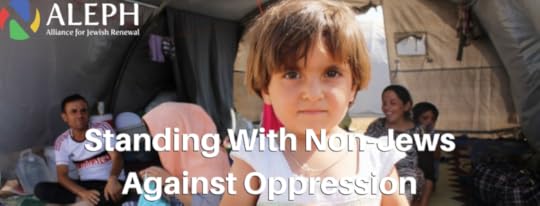
RESOLUTION BY MAJOR JEWISH ORGANIZATIONS ON DIRECT ACTION TO THWART ANY U.S. GOVERNMENT ACTION REQUIRING REGISTRATION OF MUSLIMS
As initially proposed by ALEPH: Alliance for Jewish Renewal
WHEREAS:
President-Elect Trump repeatedly has advocated and expressed his intention that Muslims resident in the United States will be required to register as such with the United States government; and
The First Amendment to the United States Constitution bans state action in respect of any establishment of religion, including tests and other qualifications on the basis of religion; and
Article II of the United States Constitution obliges the President of the United States to take care that the Constitution and laws of the United States are faithfully executed; and
Incitement and intolerance of invidious discrimination on the basis of any religion, ethnicity, race, gender, nationality or sexual orientation cultivates a civic climate that countenances all such discrimination, including anti-Semitism; and
Incitement and tolerance of religious discrimination have no place in any civil society; and
The Jewish people have living memory of anti-Jewish legislation and other official discrimination in Nazi Germany, including civic disqualification and registration with the government, preceding the Holocaust; and
Core Jewish spiritual values teach that one must not stand idly by the blood of one’s neighbor (Leviticus 19:16), and that one must love one’s neighbor as oneself (Leviticus 19:18); and
Principles of deep ecumenism view all religious traditions as potential paths to the sacred; and
Rabbi Zalman Schachter-Shalomi z”l (of blessed memory) professed faith with the Sufis of Hebron to exemplify the spiritual principle that Jews can and must stand in faithful co-religionist solidarity with Muslims;
NOW THEREFORE BE IT RESOLVED THAT:
If Muslims are required to register as such with the United States government, then all Jews — and all other persons in familial or communal relationship with Jews — are urged to register as Muslims immediately; and
All Jewish clergy associations based in the United States — including OHALAH (Renewal), Central Conference of American Rabbis (Reform), Rabbinical Assembly (Conservative), Reconstructionist Rabbinical Association (Reconstructionist) and Rabbinical Council of America (Orthodox) — as well as the Conference of Presidents of Major Jewish Organizations, its constituent organizations, all Jewish seminaries and other institutions of learning, and all other Jewish organizations, are urged to adopt, implement and publicize this resolution by all available means; and
All other clergy organizations and other faith-based organizations operating or having influence in the United States are urged to adopt, implement and publicize corresponding versions of this resolution most suitable to the tenets and contexts of their respective faith traditions; and
If Muslims are required to register as such with the United States government, then a goal is established that every United States resident promptly will register as a Muslim; and
Each ratifying organization will transmit a copy of this resolution to the official government office of Donald J. Trump as of its date of ratification; and
This resolution will be publicized by all available means.
SIGN THE PETITION!

November 14, 2016
Building the world we want to see
Hope, said Frances Moore Lappé, “is a stance, not an assessment.” But applied hope is not mere glandular optimism. The optimist treats the future as fate, not choice, and thus fails to take responsibility for making the world we want. Applied hope is a deliberate choice of heart and head. The optimist, says David Orr, has his feet up on the desk and a satisfied smirk knowing the deck is stacked. The person living in hope has her sleeves rolled up and is fighting hard to change or beat the odds. Optimism can easily mask cowardice. Applied hope requires fearlessness.
That's from a commencement speech called "Applied Hope," by Amory Lovins of the Rocky Mountain Institute. I'm struck by his assertion that the person who is living in hope is working hard toward creating a better future. It's easy to imagine that hope is a passive stance, but that's clearly not how Lovins sees it. (You can find the whole speech online if you are so inclined. A friend sent it to me a few days ago and there's much in it that moves me.) Lovins writes:
The most solid foundation for feeling better about the future is to improve it -- tangibly, durably, reproducibly, and scalably. So now is the time to be practitioners, not theorists; to be synthesists, not specialists; to do solutions, not problems; to do transformation, not incrementalism. Or as my mentor Edwin Land said, “Don’t undertake a project unless it is manifestly important and nearly impossible.” It’s time to shift our language and action, as my wife Judy says, from “Somebody should” to “I will,” to do real work on real projects, and to go to scale. As that early activist St. Francis of Assisi said, “Preach the Gospel at all times. If necessary, use words.” In a world short of both hope and time, we need to practice Raymond Williams’s truth that “To be truly radical is to make hope possible, not despair convincing.”
That last sentence really gets to me. "To be truly radical is to make hope possible, not despair convincing." Despair is often convincing, and almost everyone has reasons for despair at least some of the time. Maybe your despair is personal: your own grief or illness, or a loved one who is sick or suffering, or an injustice in your personal sphere that brings you to tears. Maybe your despair is on a bigger scale: Brexit, the American Presidential election, the realities of hatred and xenophobia. I do not deny anyone's reasons for despair. To paraphrase Hamilton's George Washington, "despair is easy, young man: hoping is harder."
I wrote a d'var Torah last month called Be strong and open your heart that explored the question of hope from a spiritual perspective. I wrote, "hope is the quintessential psycho-spiritual move of Jewish life. To be a Jew is to hope toward -- and, importantly, to act toward -- a world that is better than the one we know now." Hope for a better world may seem especially inaccessible to some of us right now. But our spiritual tradition calls us to cultivate hope, and to be galvanized thereby to act toward making that hope a reality. That's the work at hand. That's always the work at hand.
Returning again to Lovins' commencement address:
So with the world so finely balanced between fear and hope, with the outcome in suspense and a whiff of imminent shift in the air, let us choose to add the small stubborn ounces of our weight on the side of applied hope. As Zen master Gôtô-roshi put it, “Infinite gratitude toward all things past; infinite service to all things present; infinite responsibility to all things future.”
This mission is challenging. It requires you to combine sizzle in your brain, fire in your belly, perseverance rooted like a redwood, and soul as light as a butterfly. According to the Internet, one Michael C. Muhammad said: “Everything works out right in the end. If things are not working right, it isn’t the end yet. Don’t let it bother you -- relax and keep on going.”
I'm not sure I agree with the "don't let it bother you" part. Our world is badly broken, and that absolutely should bother us. But we shouldn't allow it to paralyze us. And what I take from his Michael C. Muhammad quote is the assurance that if the world is not redeemed, then our work is not yet done. If there is still injustice in the world, then our work is not yet done. If there is still bigotry in the world, then our work is not yet done. If xenophobia, homophobia, Islamophobia, antisemitism, rape culture, and hatred of the Other still plague us, then our work is not yet done. Friends, I have news for you: our work is not yet done.
Lovins -- like the Chief Rabbi of Great Britain, Rabbi Sir Jonathan Sacks (who I quoted in that d'var Torah I mentioned earlier) asks us to imagine the world as it does not yet exist -- to look beyond what is to what could be. Lovins writes, "Imagine a world where reason, diversity, tolerance, and democracy are once more ascendant; where economic and religious fundamentalism are obsolete; where tyranny is odious, rare, failing, and dwindling; and where global consciousness has transcended fear to live and strive in hope." I want to imagine a world where the vulnerable are protected, where no one is at risk of sexual assault, where religious freedom is guaranteed and celebrated, where diversities of all kinds are valued.
Each of us will have her own list of the things that feel most important about the vision of a world redeemed. What matters is that we have the vision -- that we cultivate the vision. This will take work on our parts. We have to dream of the world we need, even when doing so feels vulnerable or scary. We have to imagine the world as we most want it to be, as our hearts ache for it to be. Dream big, and fix those dreams in the forefront of your vision. And then figure out how to take one small step in the direction of those dreams, and another, and another. That's the only way we'll get there. And that's the work we're here in this life to do: to love and to dream, to hope and to build.

November 10, 2016
Prayer After the Election
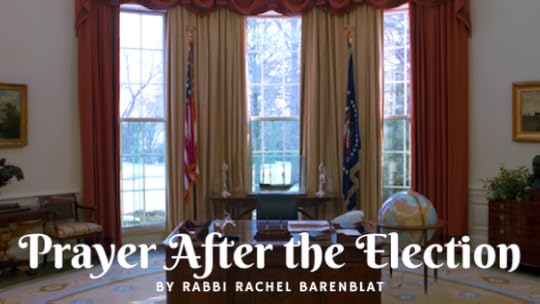
Today mourning and celebration commingle.
Jubilation and heartache are juxtaposed
In neighborhoods where lawns proclaimed
Support for different candidates, on Facebook walls
And Twitter streams where clashing viewpoints meet.
Grant us awareness of each others’ hopes and fears
Even across the great divides of red state and blue state,
Urban and rural. Open us to each others’ needs.
Purify our hearts so that those who rejoice do not gloat
And those who grieve do not despair.
Strengthen our ability to be kind to one another
And to ourselves. Awaken in us the yearning
To build a more perfect union. Let us roll up our sleeves
Whether today we feel exultation or sorrow, and together
Shape a nation of welcome and compassion.
Let ours be a land where no one need fear abuse
Or retribution, where every diversity is celebrated,
Where those who are most vulnerable are protected.
May bigotry and violence vanish like smoke.
May compassion prevail from sea to shining sea.
By Rabbi Rachel Barenblat
Written for (and first published at) Kol ALEPH, the blog of ALEPH: Alliance for Jewish Renewal.

Rachel Barenblat's Blog
- Rachel Barenblat's profile
- 6 followers


